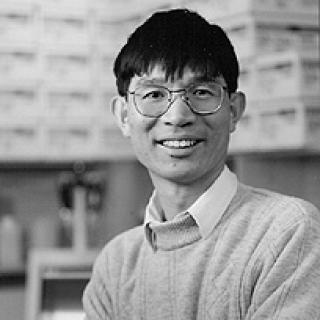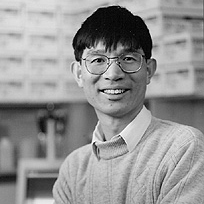
Maxwell P. Lee, Ph.D.
- Center for Cancer Research
- National Cancer Institute
- Building 41, Room D702C
- Bethesda, MD 20892
- 240-276-5239
- leemax@mail.nih.gov
RESEARCH SUMMARY
Integrated genomic and epigenomic studies of breast cancer: an allelic-specific perspective My research involves applying my expertise in genomics and epigenomics to dissecting out the components of breast cancer. I have been focusing on elucidating allele-specific gene expression and allele-specific epigenetic modifications. We developed a specific adaptation of SNP array-based high throughput technology. We showed that differential expression from the two alleles of a given gene is common in normal tissue. We followed this by demonstrating that the genetic background influences the epigenetic state of chromatin.
Areas of Expertise

Maxwell P. Lee, Ph.D.
Research
Integrated Genomic and Epigenomic Studies of Breast Cancer: An Allelic-Specific Perspective
My research involves applying my expertise in genomics and epigenomics to dissecting out the components of breast cancer. I have been focusing on elucidating allele-specific gene expression and allele-specific epigenetic modifications. We developed a specific adaptation of SNP array-based high throughput technology. We showed that differential expression from the two alleles of a given gene is common in normal tissue. We followed this by demonstrating that the genetic background influences the epigenetic state of chromatin. By investigating multiple epigenetic marks, we were able to show that histone H3 lysine 9/14 acetylation and lysine 4/9/27 methylation were influenced by their genetic background. My group further demonstrated that the chromatin state segregates as a Mendelian trait. This study was the first demonstration of the influence of the genomic background on the global epigenetic state in humans.
More recently, we have applied high-throughput genomic/epigenomic technologies, such as high-density SNP arrays, to identifying genes that present as plausible candidates for contributing to breast cancer development. The genomic investigation has led to the identification of two putative oncogenes, IRX2 and TBL1XR1. Our immunohistochemistry (IHC) studies showed that IRX2 and TBL1XR1 were frequently over-expressed in breast tumors. To date, our research has provided direct experimental evidence supporting an oncogenic effect for TBL1XR1. We used the shRNA approach to knock down the expression of TBL1XR1 in breast cancer cells and found that depletion of the TBL1XR1 protein in the cells reduced cell migration/invasion and suppressed tumor growth in mouse xenografts. Our epigenomic investigation has led to the identification of DNA methylation signatures that are selectively associated with clinical phenotypes such as lymph node involvement, histological grade, tumor size, and ER/PR/HER2 status. As an example, we observed a specific DNA methylation signature that distinguishes primary breast cancer samples diagnosed as high-grade from those diagnosed as low-mid-grade tumors.
My collaborators include Drs. Lalage Wakefield, Junya Fukuoka, Ken Buetow, Kent Hunter, Philip Taylor, Alisa Goldstein, and Dinah Singer.
Publications
- Bibliography Link
- View Dr. Lee's PubMed Summary.
Cooperative Targets of Combined mTOR/HDAC Inhibition Promote MYC Degradation
Immunocompetent mouse allograft models for development of therapies to target breast cancer metastasis
The epigenetic modifier JMJD6 is amplified in mammary tumors and cooperates with c-Myc to enhance cellular transformation, tumor progression, and metastasis
An Integrated Genome-Wide Systems Genetics Screen for Breast Cancer Metastasis Susceptibility Genes
Genomic Landscape of Somatic Alterations in Esophageal Squamous Cell Carcinoma and Gastric Cancer
Biography

Maxwell P. Lee, Ph.D.
Dr. Lee received his B.S. in biology from the University of Science and Technology of China in 1982 and his Ph.D. in biochemistry from Duke University in 1989. He carried out postdoctoral work at Duke University from 1990 to 1994 and then joined the National Institute on Aging (NIA) as a senior staff fellow in 1994. Dr. Lee became a junior faculty member at Johns Hopkins Medical School between 1995 and 1999, then joined IBM as a software engineer in 1999. He came to the National Cancer Institute (NCI) in 2000.
Team
Resources
Job Vacancies
We have no open positions in our group at this time, please check back later.
To see all available positions at CCR, take a look at our Careers page. You can also subscribe to receive CCR's latest job and training opportunities in your inbox.


